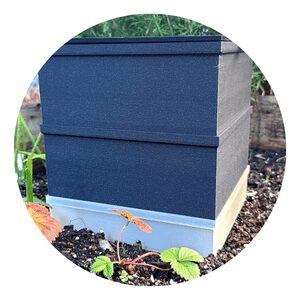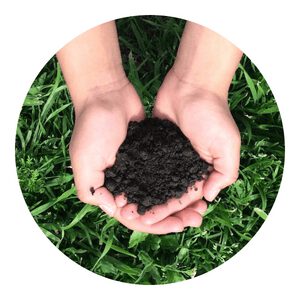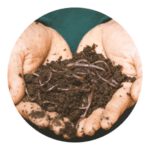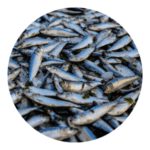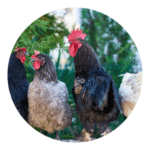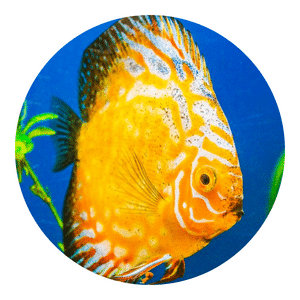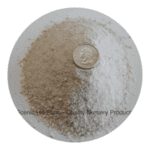Worm Farm Composter Box
If you’re looking for an easy and efficient way to compost your food waste, a worm farm composter box is a great option.
Worms are able to break down food waste quickly, and the resulting compost can be used to fertilize your plants.
A worm farm composter box is also relatively inexpensive and easy to maintain.
Worm Menu
What is a worm farm composter box?
A worm farm composter box is an enclosed container that is filled with organic matter, such as food scraps, and worms.
The worms eat the organic matter and create compost, which can be used as a natural fertilizer for plants.
Worm farm composter boxes are often used by gardeners and farmers to reduce waste and create a nutrient-rich soil amendment.
Why use a worm farm composter box?
Composting with worms is an efficient way to reduce your garbage output while creating a nutrient-rich soil amendment for your garden.
Worms consume organic matter and excrete castings that are high in nitrogen, phosphorus, and potassium—the perfect ingredients for healthy plants.
Worms also aerate the compost as they burrow through it, which speeds up the decomposition process.
A worm farm composter box makes it easy to contain and manage your worm bin. Plus, these boxes can be placed indoors or outdoors, depending on your needs and preferences.
What do you need to make a worm farm composter box?
In order to make a worm farm composter box, you will need:
-a large plastic bin with a lid (at least 18 gallons)
-drill
-1/2 inch drill bit
-screening
-scissors
-shredded newspaper
-dampened soil
-red wiggler worms (at least 1 pound)
First, drill several holes in the bottom of the bin for drainage. Then, cut a piece of screening to fit over the holes.
Next, add several inches of shredded newspaper to the bottom of the bin. On top of the newspaper, add a layer of dampened soil.
Finally, add your red wiggler worms. Make sure to keep your worm farm in a cool, dark place.
How do you make a worm farm composter box?
If you’re interested in starting a worm farm, one of the first things you’ll need is a composter box.
You can purchase a commercial worm bin, or build your own out of recycled materials.
Here’s how to build a simple composter box for your worm farm:
1. Find a suitable container. A plastic storage tub or Rubbermaid bin works well. The container should be at least 10 gallons in size and have smooth sides (no sharp edges). Drill several small holes in the bottom of the container for drainage.
2. Line the container with newspapers, cardboard, or burlap sacks to create a bedding material for the worms. Make sure to shred the bedding material so that it’s not too dense.
3. Add water to the bedding material until it’s moist but not soggy.
How do you take care of a worm farm composter box?
Worms are amazing creatures that can help turn your food waste into valuable compost for your garden.
A worm farm composter box is a great way to start composting at home.
Here are some tips on how to take care of your worm farm composter box.
To get the most out of your worm farm composter box, it’s important to follow a few simple rules.
First, only add food waste to the box. This means no meat, bones, or dairy products.
Second, chop up any larger pieces of food waste so that the worms can easily eat them.
Third, make sure that the food waste is moist but not wet.
Too much moisture will make the worms leave the box in search of drier conditions.
Fourth, keep the box in a cool, dark place. Worms like it cool and dark!
Are worm farms better than compost bins?
There are pros and cons to both worm farms and compost bins.
If you are looking to generate compost quickly, then a bin is going to be your best bet.
However, if you want to create a sustainable system that will produce compost for years to come, then a worm farm is the way to go.
Worm farms are more efficient than compost bins because the worms aerate the organic matter as they consume it.
This means that decomposition happens more quickly, resulting in finished compost in as little as two months.
Worm farms also don’t produce any odors, making them ideal for indoor use.
The biggest downside of worm farms is that they require more maintenance than compost bins.
The worms need to be fed regularly and the bedding material needs to be replaced every few months.
There are many benefits to having a worm farm composter box. It's a great way to compost your food scraps, and it's also good for the environment. Your worms will thrive in their new home, and you'll be able to reduce your trash output. Plus, it's a fun and easy project that you can do with your family or friends. So why not give it a try? You may be surprised at how much you enjoy it!
Chappy The Gardener
What is the best container for worms?
When it comes to raising worms for composting, the best container is one that allows for good drainage and aeration while keeping the worms moist.
A plastic tote with holes drilled in the bottom or a bin made from recycled plastic are both good options.
The size of the container will depend on how many worms you want to raise.
Worms need a dark, moist environment to thrive, so the container you choose should be opaque and have a tight-fitting lid.
The bedding material you use will also play a role in creating the perfect environment for your worms. Coconut coir, shredded newspaper, or vermiculite all make good bedding materials.
Can you put compost in a worm farm?
There’s no need to add worms to your compost bin; they’ll find their way there on their own. But if you have a worm farm, you can use it as a compost bin, too.
Just be sure to put your kitchen scraps in the worm farm only when the worms are actively feeding, and don’t overfeed them or they’ll start to smell.
If you have a lot of kitchen scraps, you can add them to the worm farm a little at a time so the worms have time to eat them. You can also put your compostable paper goods in the worm farm.
Can you have too many worms in your compost?
You can have too many worms in your compost if they’re not getting enough food.
The worms will start eating each other and you’ll end up with fewer worms than you started with.
If you have too many worms, they’ll also produce more methane gas, which is a greenhouse gas.
Do I need to aerate my worm farm?
Worms are often used in composting, as they help to break down organic matter.
However, some people may wonder whether they need to aerate their worm farm.
Generally, worms do not need to be aerated, as they are able to breathe through their skin. However, if the worm farm is particularly large or if it contains a lot of food waste, then aeration may be necessary.
This can be done by using an electric drill to make holes in the sides of the farm, or by manually turning the compost over with a pitchfork.
If you are unsure whether your worm farm needs to be aerated, you can always ask a local expert or contact the manufacturer of your worm farm for advice.
Can worms survive in a closed container?
A worm farm composter box is a great way to compost your kitchen scraps and other organic materials.
But what happens if you close the lid on your worm farm composter box? Can worms survive in a closed container?
The answer is yes, worms can survive in a closed container. However, they will not be able to thrive and will eventually die off.
Worms need oxygen to breathe, and they also need access to food and water. When you close the lid on your worm farm composter box, you are essentially creating a closed system.
The worms will slowly use up the oxygen in the box, and without fresh air coming in, they will suffocate.
They will also run out of food and water, as the composting process slows down or stops completely without fresh materials being added.
How fast do worms reproduce?
Worms are able to reproduce rather quickly. For every two worms that mate, they can produce up to 1,000 offspring in just a few months.
This is due to the fact that worms are hermaphrodites, meaning that each worm has both male and female reproductive organs.
This allows them to mate with any other worm, and increases the chance of successful reproduction.
Do worms like banana peels?
It’s a common misconception that worms don’t like banana peels.
However, this couldn’t be further from the truth! In fact, banana peels are one of the most popular food items for worms.
Why? Banana peels are packed with nutrients that help worms thrive. They’re also rich in potassium, which helps promote healthy plant growth.
Worms aren’t the only ones who love banana peels. Many different types of animals enjoy munching on them as well.
From chickens to rabbits, goats to pigs, there are plenty of creatures that find banana peels irresistible.
So if you’re looking for a way to add some extra nutrition to your worm farm (or your pet’s diet), don’t hesitate to add some banana peels to the mix!
In conclusion, whether you buy or build a worm farm, you will be doing something good for the environment.
Worms help to aerate and improve the quality of soil, which in turn leads to healthier plants.
And as an added bonus, you can use the nutrient-rich castings produced by worms as a natural fertilizer for your crops.
So go ahead and do your part to help the planet – start a worm farm today!
Worms Farm FAQ
Worms are sensitive creatures and there are certain things you should avoid putting in your worm farm.
Coffee grounds, citrus fruits, and meat can all be harmful to worms.
Coffee grounds contain high levels of acidity which can make the soil in your worm farm too acidic for worms to survive.
Citrus fruits like lemons and oranges can also be too acidic for worms.
The oils from these fruits can also coat worms and make it difficult for them to breathe.
Meat is another no-no for worm farms.
Meat contains high levels of protein which can cause the build-up of dangerous ammonia levels in the soil.
This can be toxic for worms and other creatures living in your worm farm.
Worm farms are a great way to compost your food waste.
Here are a few things you need to know about worm farms:
1. Worms eat food waste and turn it into nutrient-rich compost.
2. Worm farms can be made from a variety of materials, including plastic bins, wooden boxes, or even recycled tires.
3. You will need to add bedding material to your worm farm, such as shredded newspaper or coconut coir.
4. Once your worm farm is set up, you will need to add food waste on a regular basis. worms will multiply in population as they consume more food waste.
5. You can harvest the compost from your worm farm when it is dark and crumbly in appearance. This can be used as a natural fertilizer for your plants.
If you’re thinking about starting a worm farm, you’re probably wondering how long it will last.
Luckily, worm farms are relatively easy to maintain and can last for years with
the proper care. Here’s what you need to know to keep your worm farm going strong.
Worms are amazing creatures that can help turn your kitchen scraps into nutrient-rich fertilizer for your plants.
But even though they’re hardy, they still need some basic care in order to thrive.
The biggest key to a successful worm farm is ensuring that the conditions are right for the worms.
They need a moist, dark environment with plenty of organic matter for food.
If you can provide these things, your worms will be happy and your farm will last for years.
As the popularity of worm farms continue to rise, many people are wondering if there is such a thing as too many worms in a worm farm.
The answer, it turns out, is yes.
While worms are great for breaking down organic matter and turning it into nutrient-rich compost, they can only do so much.
If there are too many worms in a farm, they will start to compete for food and space. This can lead to poor worm health and even death.
So how many worms should you have in your farm?
A good rule of thumb is to start with 1 pound of worms for every square foot of surface area.
This will give them enough room to thrive without overcrowding.
If you overfeed worms, they will become obese and might not be able to reproduce.
In the wild, worms typically eat their own weight in food each day.
If you overfeed them, they can easily become twice their size.
When this happens, their body shape changes and they can no longer move around as easily.
This makes it difficult for them to find mates and reproduce.
Overfed worms also have a shorter lifespan than healthyworms.
Helps Us Grow – Share If You Like





